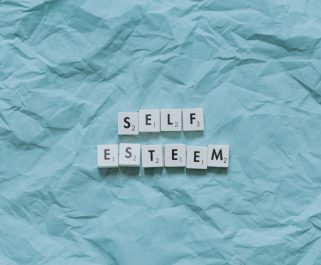Self-esteem - how we see and value ourselves - has a profound influence on our mental health. It shapes how we cope with challenges, form relationships, and view our place in the world. When our self-esteem is healthy, we feel more confident, resilient, and empowered. But when it's low, it can become a heavy burden, distorting our thoughts and holding us back.
In this post, we'll explore how self-esteem and mental health are connected - and share practical ways to nurture a healthier relationship with yourself,
What is Self-Esteem?
Self-esteem is our overall sense of self-worth. It's the voice in our head that either lifts us up or pulls us down. While it's normal for self-esteem to fluctuate throughout life, consistently low self-esteem can take a serious toll on mental wellbeing.
People with healthy self-esteem often:
- Trust their own judgement
- Feel comfortable asking for help
- Accept both their strengths and weaknesses
- Set boundaries in relationships
Those with low self-esteem might:
- Struggle with negative self talk
- Feel underserving of love or respect
- Compare themselves constantly to others
- Avoid challenges out of fear or failure
The Connection Between Self-Esteem and Mental Health
Low self-esteem doesn't just affect how we feel about ourselves - it can influence our entire emotional and psychological experience.
- Depression and Anxiety
Negative self-perception is closely linked to both depression and anxiety. When someone believes they aren't good enough, they may experience:
- Constant self-criticism
- Hopelessness about the future
- A fear of not meeting expectations
These beliefs can spiral, making everyday challenges feel overwhelming.
2. Stress and Burnout
Low self-esteem can lead to perfectionism or the need to "prove" oneself. This may result in overworking, difficulty saying no, or avoiding rest - often leading to burnout.
3. Relationship Difficulties
Our self-worth shapes how we show up in relationships. Low self-esteem might cause someone to stay in toxic situations or avoid intimacy due to fear or rejection.
4. Avoidance and Missed Opportunities
When we doubt our abilities, we may hold ourselves back. Whether it's not applying for a job, avoiding social situations, or turning down opportunities - we can become our own biggest obstacle.

How to Build Healthy Self-Esteem
Improving self-esteem is a journey, not a quick fix. But with small, consistent steps, it's possible to change the way you relate to yourself.
- Challenge Your Inner Critic
Pay attention to your internal dialogue. If you catch yourself thinking, "I'm a failure", try to reframe it with compassion:
"I'm doing my best, and mistakes are part of learning."
Would you speak to a friend the way you speak to yourself?
2. Celebrate Progress, Not Perfection
Set small, achievable goals and take pride in each step. Confidence builds when we notice what we're doing right - not just what we could do better.
3. Surround Yourself with Support
Spend time with people who uplift and accept you. Healthy connections help reinforce that you're worthy just as you are.
4. Practice Self-Compassion
Self-compassion means treating yourself with kindness, especially in moments of struggle. It's okay to rest. It's okay to not have all the answers.
5. Seek Professional Help
Counselling provides a safe space to explore where low self-esteem may have started and how to shift those patterns. Working with a trained therapist can help you reconnect with your strengths and learn tools to support long-term mental health.
Final Thoughts
Healthy self-esteem is not about being perfect - it's about being kind to yourself, believing in your worth, and showing up even when things feel hard.
If you find that low self-esteem is affecting your mental health, relationships, or daily life, you're not alone - and you don't have to go through it alone either. Reaching out for support is a powerful step toward healing.
If you'd like to explore these topics in a safe, supportive space, I'm here to help. Contact me to book a session or learn more about how counselling can support your journey. I offer both face to face and online counselling sessions, and to help you decide if I'm the right fit for you, I provide a free initial telephone call. This is a no-pressure opportunity for you to share what's on your mind, ask any questions, and get a feel for how I work. To get in contact visit my website www.oceansbreezecounselling.org.uk and complete contact me form.
You deserve support that feels right for you.

